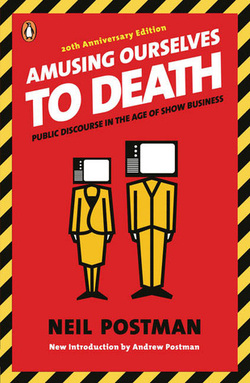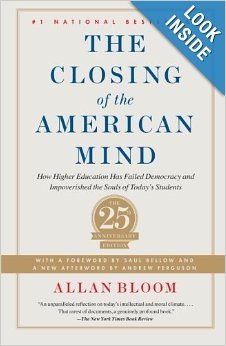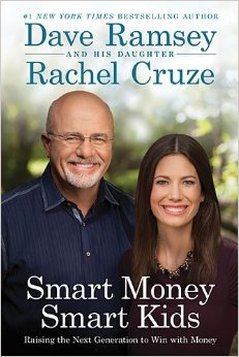"Pretend you are Muslim." Jay Sekulow has rallied the outcry against this assignment and collected over a hundred thousand signatures petitioning the Department of Education with the following: Public schools are a place for religious freedom, not indoctrination. Stop Islamic indoctrination in our schools and protect the religious liberty of students. Well, I could see how this assignment would be considered Islamic indoctrination. But what I'm wondering is, how is it any worse than the secular humanist indoctrination that takes place for virtually every other assignment in virtually every other class?
But the thing is, knowledge to Solomon is not something in and of itself. He defines "knowledge" as an understanding at which the very foundation is the fear of the Lord (Prv. 1:7). In other words, whereas the fool - the very fool who in his heart says "there is no God" (Ps. 14:1) - whereas he is one who literally "hates knowledge" (Prv. 1:22, true knowledge), the godly man (in God's sovereign mercy) understands that true knowledge can only be attained by beginning with the fear of the Lord (Prv. 1:7, 9:10).
True knowledge (and I say true knowledge because there is in Scripture something described as a knowledge falsely so-called - 1 Tim. 6:20): True knowledge does not merely conclude with the fear of the Lord, nor does it merely accept the fear of the Lord along the way. True knowledge begins - at its most basic point - begins with the fear of the Lord. And that certainly has implications for the Christian life and how we go about the business of "back to school."
As we'll see, in dealing with Christian ethics (that is, Christian living applied to any area of life), there is much to be said for not only the conclusions you draw, but also the questions you ask - and the assumptions upon which those questions are based.
But you need to keep in mind two things (among the others covered further down): (1) It’s not a matter of your wallet, but a matter of what is right in God’s eyes (Mt. 6:24), and (2) you’re not just voting for something that affects you; you’re voting for what affects your entire community. Who doesn’t want their property value to go up? Yet as a believer, are you willing to say it’s okay to go force your neighbor to apportion some of his own earnings toward keeping your property value up? Is that really loving your neighbor?
But I don't want to get ahead of myself. First let me assure you of the things that I am not saying:  A Paradigm Shift in Our Understanding of Communication Although there's definitely a temptation for us to amuse ourselves to death with things that have always had the intent of amusement (sitcoms, dramas, sci-fi, fantasy, etc), Neil Postman has nothing bad to say about "junk television" (as it's called in the introduction). Rather, his very compelling argument is that we're turning into a society that will amuse itself to death because our capacity to comprehend and act on things is transforming into one that only operates on amusement itself. In other words, it's not that we make things for the sake of amusement that will hurt us, it's that we now make everything - even things that are not meant to be amusing - into a venue of entertainment.(1) While originally published in 1985, I sincerely think this book is just as relevant today (in the age of Google, Youtube, Facebook, and Twitter)* if not even more so than when it was first penned. Postman takes the reader through the history of our mediums of communication and shows (and I mean, really shows from history) that when our culture of communication started to turn from the printed word to visual images, our capacity to think through things cogently had started to drop significantly. Our attention span has taken a terrible plummet. And even our humanity has been desensitized to a degree. On 2/28/13 Steve McSwain was published in the Huffington Post's Religion section with the following article:
6 Things Christians Should Just Stop Saying The list is pretty straight forward, although he does some lengthy elaborations on some of the points. But in summary, here are the six things which a fellow(?)-Christian(1) says all other Christians really need to stop saying:
While I wanted to respond back then, I didn't really have a forum to do so; and I also didn't really have the time until just recently (preparing for the birth of our daughter, learning how to be a Dad to a newborn, going through an unexpected job change, etc.). Nonetheless, now that I do have time, I'd like to do something of my part in protecting (or encouraging) the flock, and give (by God's grace in me) what I believe is a Biblical response.  I think I understand why this book got such raving reviews at its publication in 1987. Allan Bloom certainly documents his acute observations on how our society moved from one that had absolute standards to a society where everything is relativized and the only thing absolute is the maxim that all views are equally valid (except the view that holds that not all views are equally valid). Through the book, Bloom takes the reader on a journey through three main sections: Part One: Students Part Two: Nihilism, American Style Part Three: The University While some places are easier to understand than others, throughout the book I was constantly scratching my head either because of a criticism he gave that offered a lot to think about or simply because he used such high-minded language I had no idea what he said. I was reminded of a book published 11 years earlier called Foundations of Christian Scholarship, where the contributors' aim was to write for upper division college students and graduate students with the caveat that "If Christians had done their work properly in the field of private Christian education, these essays would be geared for high school seniors, or at the most, college freshman." That was in 1976. I would venture to guess even upper division college students and/or graduate students would have a hard time with the book at this point (although I will say it was still easier than Bloom's). |
Categories
All
|



